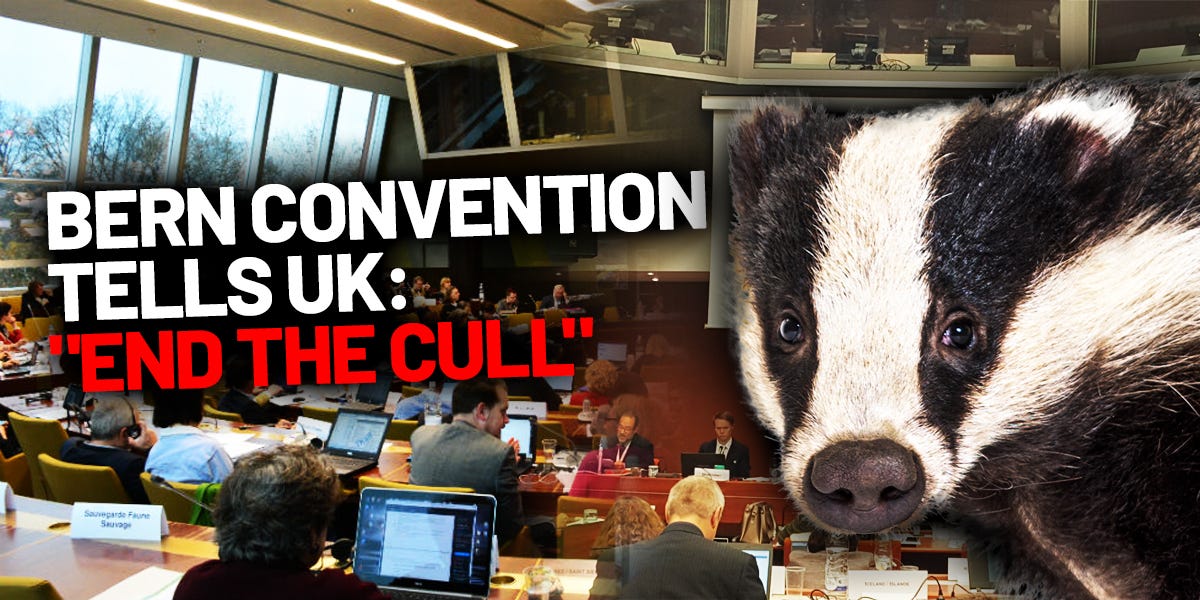I have been told, again, that I seem to be very concerned with wildlife health welfare.
😐
Of course I am. I am not a member of the Green Party so I do care about the environmental and wildlife crisis that is currently taking place. Next year will be my official 50th (I don't count when I was learning as a child) year as a naturalist, researcher/archivist. I have read many thousands of news and items and journals going back to the 17th century, hundreds of books going back to the 16th century and that learning continues.
We saw what one might call The First Modern Mass Extinction during the early Medieval period up to the 1500s. Bears, lynx, wolves, boar and many other species (land and air) wiped out by humans. By the start of the 17th Century much wildlife was imported from Europe to replace "beasts of the chace" for hunting 'fun' -the bigger mammals were no longer around to kill and so the Old wild cat and Old fox species were put on the list.
By the mid 1830s it was apparent, and written about frequently, that the Old fox was heading for extinction and there was much discussion. But discussion not about saving the species but about what would happen "to our sport". Yep, if foxes went extinct then there was nothing else to hunt and kill. Hares died out in many areas due top hare hunting as did otters and many others including deer.
From the early (possible) 16th century on the importing of animals to hunt increased but that meant constant "re-stocking" and Leadenhall Market imported at least 2000 foxes a year to hunt and the actual number with the number of importers in England must have exceeded 3-5000 per year.
However, the 1860s can be seen as the Second Modern Mass Extinction with Old Fox and Wild cats, red squirrels and others falling into the gaping hole. More Red squirrels imported and yet shooting clubs were still noting with pride the hundreds of squirrels their members were killing. I doubt that a genuine British Red squirrel exists today. When importing stopped due to World War 1 and then anti rabies legislation wildlife took a downturn and never -despite the many false claims- recovered.
Foxes are still shot for 'fun' nightly which means those 'sportsmen' (it is what they call themselves) are actually helping drive foxes to extinction as we are calculated to have already lost 65-70% of the fox population.
We lose badgers every year to cars and 99% of drivers do not even report hitting an animal whether fox, badger or even a deer (hopefully the damage caused hitting the latter ran into the hundreds in repair work on the precious car).
There are people who will kill or try to kill pet dogs and cats as well as abuse horses and cattle. "A Nation of animal lovers".
We have seen the increased decline in hedgehog numbers and there is little doubt that the 2030s will see the Third Modern Mass Extinction with many mammals and birds, etc joining the fox, badger and hedgehog.
Treating wildlife for injuries in the wild for minor injuries and ailments is beneficial in that there is no stress on them from being trapped, caged and then held for a period of time where the treatment can take longer to work. But wildlife vets and rescues need to step out of the dark ages and into modern times.
A fox does not depend solely on eyesight to survive as hearing and smell are the main senses. Blind in one eye "It can't survive in the wild -kill it. A badger that a wildlife hospital felt was blind had survived a long time until an unblocked drop point in the ground meant it got trapped. Again, badgers do not solely rely on eyesight but the vet declared it could not live in the wild and no wildlife rescue was asked whether they could take it on so -kill it.
I often wonder whether these people "cast the bones" before making their decisions. They certainly do not listen to people who deal with foxes and badgers daily.
A leg injury in a fox "It cannot survive in the wild -kill it". I even wrote a piece about how well three legged foxes survive and at least two such vixens have had a couple of litters with no problem. https://foxwildcatwolverineproject.blogspot.com/2024/08/fox-leg-amputation-reason-to-kill.html
A facial injury: "Can't be treated -kill it" BUT why kill the fox? With severe infection and necrosis I can understand and the smell and black skin will tell you when it is too far gone. One vixen with cubs had a facial injury and talk was of trapping which would mean killing it or "euthanising" it. It was decided to start treatment and give it a set period to note any success and that way it could still feed its young cubs. The facial injury healed and the vixen is still alive.
Mange is NOT a death sentence that destroys organs and leads to a nasty death. It just needs treating as soon as possible and in the last three years over 600 local foxes have been successfully treated (previously the local wildlife rescue had any fox with what someone decided was "35% mange" put down. The new regime there is treatment (under veterinary advice) and that has saved 600 foxes rather than wipe them out.
This item may be of interest:
https://foxwildcatwolverineproject.blogspot.com/2024/08/treating-infections-facial-injuries-and.html
The answer to the statement "you seem to be very concerned with wildlife health welfare" is "Yes, I bloody well am and so should you be now get off your ass and help!"







